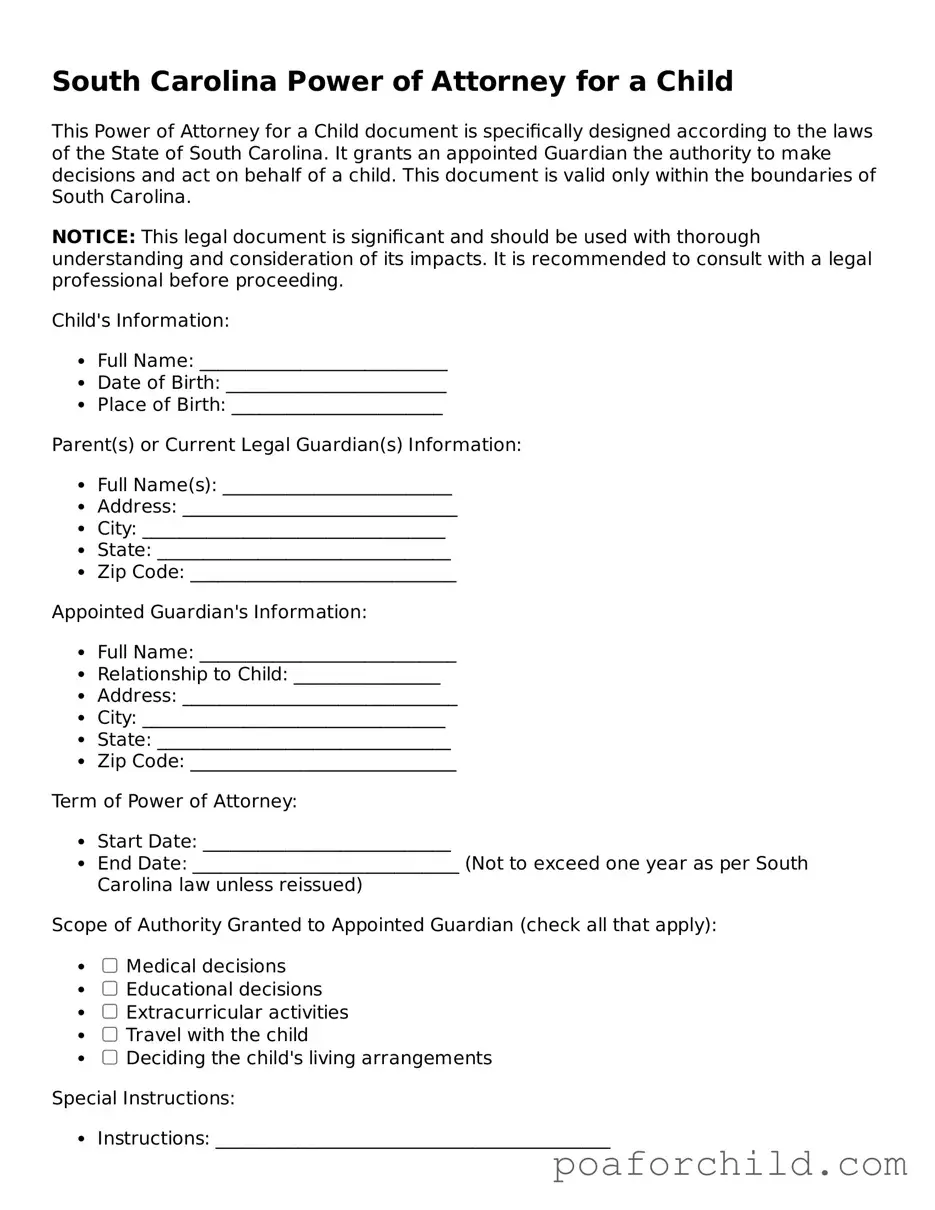Detailed Guide for Using South Carolina Power of Attorney for a Child
In South Carolina, granting someone else the power to make decisions about your child's welfare, including education, health care, and general supervision, is a serious matter. The Power of Attorney for a Child form is a vital document for parents or guardians who need to temporarily delegate their parental rights and responsibilities. It's essential to follow the correct procedure to ensure that the document is legally binding and to protect the best interests of the child. Let's walk through the steps required to fill out this form correctly.
- Gather all necessary information: Before you begin, make sure you have the full legal names and addresses of the parent(s) or current guardian(s), the appointed attorney-in-fact, and the child. You'll also need specific details about the child, such as their date of birth and social security number, if applicable.
- Download or obtain the form: The form must be the correct one for South Carolina. Ensure you're using the most current version by checking the state's judicial website or obtaining it from a legal professional.
- Enter the child's information: Fill in the child's full legal name, date of birth, and social security number in the designated sections of the form.
- Document the appointer(s): Clearly write the name(s) and address(es) of the parent(s) or current guardian(s) appointing the power of attorney in the spaces provided.
- Designate the attorney-in-fact: Specify the full legal name and address of the person being granted the power of attorney. This person will be authorized to make decisions on behalf of the child.
- Specify the powers being granted: The form may include a list of specific powers that can be checked off, or it may require you to write in the powers being granted. Be clear about what decisions the attorney-in-fact can make, including education, healthcare, and general welfare.
- Include any limitations: If there are specific decisions or areas you do not wish the attorney-in-fact to have authority over, list these limitations clearly on the form.
- Set the duration: Indicate the start and end dates for the power of attorney. South Carolina law may limit the maximum duration, so be sure to comply with these regulations.
- Sign and date the form: The parent(s) or current guardian(s) must sign and date the form in the presence of a notary public. Some versions of the form may also require the signature of the attorney-in-fact, acknowledging their acceptance of the responsibilities.
- Notarize the form: Have the form notarized to confirm the identity of the signatories and validate the document.
- Distribute copies: Provide a notarized copy to the appointed attorney-in-fact, keep a copy for your records, and consider giving copies to relevant parties, such as your child's school or healthcare provider.
Once the South Carolina Power of Attorney for a Child form is properly filled out and notarized, it serves as a legal document allowing the designated attorney-in-fact to make decisions on behalf of the child within the specified scope. It's a precautionary step that ensures the child's needs can be met even when the parent or guardian is not available. Remember, this form can be revoked at any time by the parent or guardian, a flexibility that adds a layer of security for all involved. Should circumstances change or if there's a need to update the attorney-in-fact's powers, it's important to address these changes formally through an updated power of attorney document.
